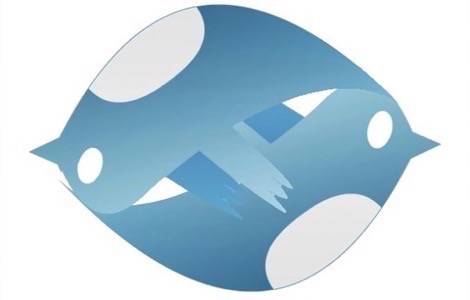
Over the years, there are few services that have permeated my life so deeply as Twitter. It has become an irreplaceable part of my modern existence. Yesterday, Twitter changed its rules for how developers can build for the platform. While I hold reservations about what Twitter is doing, I am not only happy that Twitter made the changes, I wholeheartedly endorse its direction.
Go forth Twitter, make money and be happy. Most importantly, make sure Twitter exists for a long time.
Twitter has become many things to me over the years. A place to report the news, give opinions on a variety of topics, ask opinions about music, complain or pontificate about the Boston Red Sox, share my articles and more. It is a nuanced ecosystem that each user can employ to their specific wants and needs.
Twitter’s new terms for developers, while expected for over a year, are causing outrage among pundits and app makers that value open systems and free access to data. Twitter’s changes, they say, are messing with their livelihoods.
To that, I say: what about Twitter’s livelihood? This is an American-bred company that has every right to do what it has to do to not only survive, but thrive. Twitter has every right to consolidate its platform, impose its own design rules on how tweets are displayed and fashion its business model to guarantee its viability not just for the short term, but for years down the road.
Where it All Began: The UberMedia Skirmish
One of the biggest problems that people have with the new Twitter rules for developers is that it severely curtails who and how third-party clients can use the service. Those clients include services like Hootsuite, TweetBot, Echofon and others. Twitter told its developer ecosystem last year to stop making third-party clients as it continued to push users to Twitter-owned properties.
In this way, Twitter can control the eyeballs that see its tweets and effectively advertise to them. The new rules for developers do not allow them to change the timeline (the Twitter “stream”) in their clients means that services that allow muting or blocking of tweets will be curtailed. In this way, any ads that Twitter places into users streams will be the same no matter what client a person is using.
The impetus for cracking down on third-party clients came early in 2011. A company UberTwitter (later UberSocial and now called UberMedia) began acquiring as many third-party Twitter clients as it could lay its hands on. The idea for UberMedia was to do what Twitter had not done to that point: make money from the vast stream that are peoples’ daily tweets.
To Twitter, this was a case of clear and present danger. Allow UberMedia to control the monetization of the stream and Twitter the company could essentially kiss its future goodbye. The battle came to a head when UberMedia reportedly bought the popular application TweetDeck for $30 million in February 2011.
This was unacceptable to Twitter. The TweetDeck to UberMedia deal never went through and Twitter itself later bought the application for $50 million in May 2011. ReadWriteWeb lamented the sale of TweetDeck at the time, mourning a lost opportunity of a true unified interface for all social interactions.
The UberMedia skirmish was the first resounding in Twitter’s ongoing battle with its developer ecosystem that has led to this point. I did not have a problem with what Twitter did then and, despite my colleagues reservations, was actually happy that TweetDeck went to Twitter (as long as Twitter did not shut it down completely). In my mind, whatever Twitter can do to strengthen its core, the better.
This is where my reservations begin.
What About Flipboard and Zite?
For a long time after its TweetDeck acquisition, no meaningful updates to the platform came for any its applications including desktop, iOS or Android. In that time, TweetDeck became increasingly buggy and difficult to use, especially on its mobile clients. My reservations about Twitter’s moves to restrict third-party clients revolve around what has happened with TweetDeck. If Twitter is going to own and operate the most popular third-party client, it needs to make sure that client gets the attention it deserves. If Twitter cannot or will not do that, then it should let its developer ecosystem do it for them. Many people love TweetBot, perhaps the largest independent Twitter client, but its long-term future is now in doubt.
Then there is the case of Flipboard and Zite.
Flipboard is a popular application that was launched shortly after the release of the first iPad. It is a magazine-style app that draws its content from Twitter streams (along with other sources like Facebook). Zite is similar in that it is a serendipitous content discovery engine by aggregating and weighting various social factors including Twitter.
The new rules for the Twitter API and display guidelines makes it unclear whether or not these applications (and several like them) will be able to function, hence putting their survival in question. Flipboard’s CEO Mike McCue recently relinquished his place on Twitter’s board of directors, likely in opposition to these changes.
To me, the Twitter integration into Flipboard is a beautiful thing. I imagine it as a curation engine for my thoughts, articles, pictures and interactions. My interaction with Zite is similar in that it is a service that I use to find article topics, see the industry buzz and find new voices to read.
Twitter wants its platform to be integrated everywhere. Indeed it has. It permeates mainstream media, giving an easy online identity people that were once upon a time inaccessible to the average consumer. Twitter has no problem with developers building for integration. But, when it comes to changing how and what a tweet looks like and how the timeline can be viewed, Twitter has put its foot down.
This creates a quandary that is hard to reconcile. I want Twitter to do everything in its power to preserve its future. In this, I accept and endorse the fact that is has to make hard decisions in regards to its developer ecosystem. Some eggs need to be broken to make a frittata. On the other hand, exceptional services that rely on Twitter need to have the freedom to tap the platform.
Twitter has grown into a company that has become important enough to eclipse the status of just another social media platform. It is now a social utility and is a powerful method of communication. With the status of utility and power, Twitter has the obligation of doing whatever it can to make sure it remains viable for years to come.
That obligation also comes with an imperative to support the exception members of its supporting ecosystem, whether they follow the precise letters of Twitter’s law or not.










